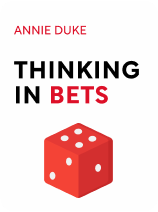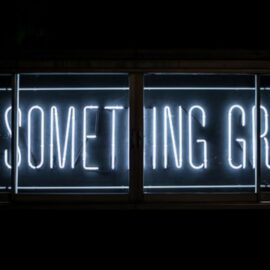

This article is an excerpt from the Shortform book guide to "Thinking in Bets" by Annie Duke. Shortform has the world's best summaries and analyses of books you should be reading.
Like this article? Sign up for a free trial here .
What are self-serving attributions? How do they keep us from learning and growing?
Self-serving attributions are a form of bias that we’re all guilty of at times. If our decision turns out well, we attribute it to our skill. If it doesn’t, we call it bad luck. When we think this way, we fail to learn from experience because we’ve mischaracterized the experience. To learn and grow, we should look honestly at ourselves—and at others.
Continue reading to learn how self-serving attributions might be getting in the way of growth.
How Self-Serving Attributions Hold Us Back
We’re prone to self-serving attributions—we own the positive outcomes, attributing them to skill, and brush off the negative ones as bad luck. We don’t want bad things to be our fault. It’s tempting to give in to self-serving attributions even if we’ve accepted that most outcomes result from a combination of luck and skill.
This form of bias can make us overlook the learning opportunity in a mistake, or double down on beliefs that are holding us back. An actor who can’t find work might tell himself that he’s just unlucky or he hasn’t come across the right role yet. He’s always been praised for his talent; he knows he’s good enough. And he might be right that it’s just bad luck stopping him. But maybe he needs to try auditioning with a different monologue or learn new techniques. His certainty about his own talent might be preventing him from experimenting with new, potentially more effective, approaches.
(Shortform note: For more on bias and the other ways our innate irrationality throws off our decision-making, read our guide to Predictably Irrational.)
Why It’s Hard to Learn From Others (But You Should Do It Anyway)
You can learn from others just as much as you can learn from your own experiences. You watch others play a game and observe the strategies they use. You watch a parent or instructor drive when you’re first getting your license. You watch how a colleague delivers a presentation and then apply their tactics to become a better speaker and presenter yourself.
When you watch other people make decisions—make bets—you can learn without having to risk anything yourself. But the same kind of thinking that produces self-serving attributions exists when we watch others, too—only in reverse. In the same way that we instinctively want to attribute our successes to skill and our failures to bad luck, we’re tempted to attribute other people’s successes to luck and their failures to a lack of skill. This is especially true if it’s a person we have an existing opinion about—a belief that affects our perception of them.
Competition is in our nature—competition for resources, for jobs, for partners. For victory in a poker game. Downplaying other people’s skills is a way of downplaying the competition. Even when we’re not competing, we’re comparing. Research shows that a significant factor in how happy we feel with our lives is where we stand in comparison to other people. That’s why status symbols like designer clothing or luxury cars are so popular. A logo or a higher price tag doesn’t necessarily make a product better. The appeal is in how that product makes you appear to others, and how their perception of you lifts your self-perception.
But if you don’t keep that instinct in check, it’ll hinder your ability to learn from others. You’ll miss your chance to pick up on strategies you could’ve put to use in your own life. More importantly, you might fail to treat others with the compassion you would have wished for yourself if you were in their shoes.
Keeping self-serving attributions in check helps you learn from your own experience. It also helps you learn from others.

———End of Preview———
Like what you just read? Read the rest of the world's best book summary and analysis of Annie Duke's "Thinking in Bets" at Shortform .
Here's what you'll find in our full Thinking in Bets summary :
- How to get better at making good decisions
- How to work around your biases
- How to evaluate and learn from your past






